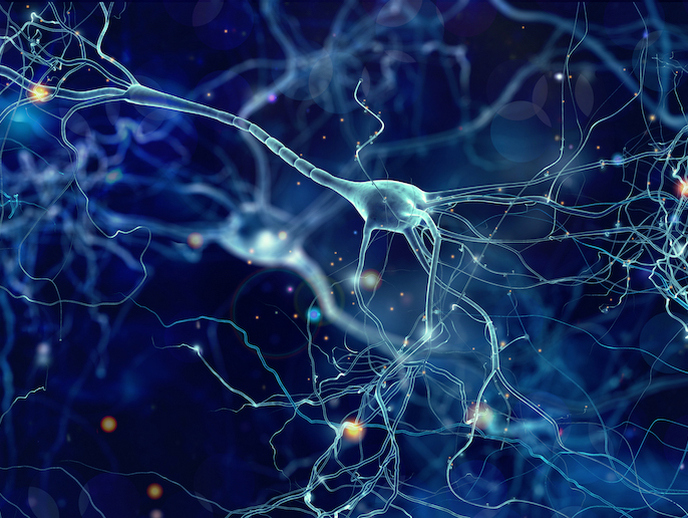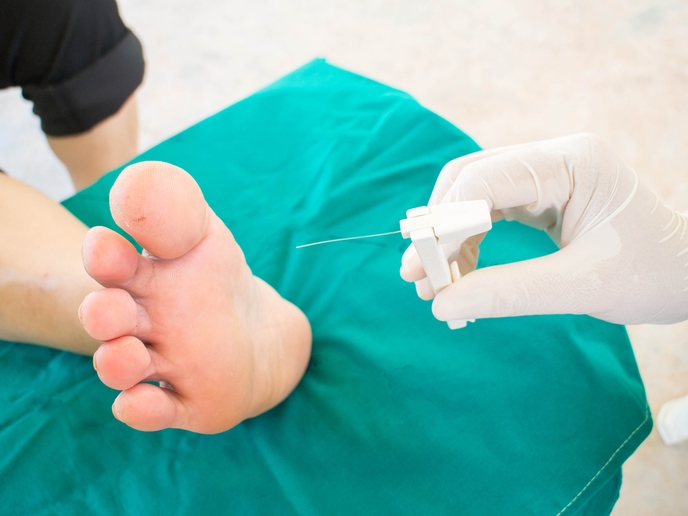Game-changing treatment for post-traumatic stress heads towards clinical trials
PTSD is a devastating psychological disorder. When prompted by specific triggers, people with the condition relive traumatic experiences, provoking symptoms such as flashbacks, intrusive thoughts, nightmares and severe anxiety. The EU-funded TWO-BIRDS project has developed a new class of potential drugs which have been shown in preclinical trials to be both effective against anxiety, and safe. www.Synendos.com (Synendos), the project host, is now working to complete the required preclinical safety tests and undertake the clinical steps necessary to turn this new class of compounds into drugs to treat PTSD and other neuropsychiatric diseases. “Drug development typically takes many years and millions of euros before new medicines reach patients. Our plan is to get to early clinical safety testing in humans as rapidly as possible. Then we will approach a large pharmaceutical partner to conduct the larger clinical trials required for registration,” says Andrea Chicca, chief executive officer and chief scientific officer of Synendos, and project coordinator.
‘Two-birds-one-drug’ strategy
Research suggests that master neuroregulators called endocannabinoids may be heavily involved in cognitive processes, including the control of mood and memory. Control of these endocannabinoids therefore holds out hope for the restoration of normal brain functioning for those with neuropsychiatric diseases. The TWO-BIRDS team have identified a new family of small molecule drugs that can regulate the endocannabinoid neural circuit, highly dysregulated in PTSD. These selective endocannabinoid reuptake inhibitor (SERI) drugs restore balance to the brain chemistry by increasing the concentrations of endocannabinoid molecules. As this increase is mild, to naturally occurring levels, the drugs do not overload the system so avoiding side effects. This approach also minimises the risk of drug dependency or causing cognitive damage. The current lead drug candidate is known as SYT-510. The SERIs were tested in test tube cells and in mice to study their impact on anxiety, compulsive behaviour, stress, inflammation, discomfort tolerance, muscle rigidity and multiple sclerosis. “To maximise the potential of SYT-510, we are evaluating a ‘two-birds-one-drug’ strategy which includes testing SYT-510 in Tourette’s syndrome patients,” explains Chicca. “Tourette’s is another central nervous system disorder where control of the endocannabinoid system has been clinically validated.”
Treating a widespread condition
PTSD patients react to environmental and interpersonal triggers in emotionally exaggerated ways, with angry outbursts, crying, accusatory- and/or passive-aggressive behaviour, or by creating chaotic or conflict-ridden situations. “Studies have estimated that 10 million people suffer from PTSD in Europe, with up to 70 % not finding effective relief,” notes Chicca. Initial treatment is usually psychotherapy, combined with medication. Unfortunately, current drugs for PTSD address only specific symptoms and so are often ineffective in treating the whole condition. This leaves the vast majority of PTSD patients living with hard to manage symptoms, susceptible to substance abuse and suffering from the undesirable effects of drug treatment such as weight gain, nausea, decreased libido or sleep problems. During the TWO-BIRDS project, the team completed a feasibility study which included: interviews with key Tourette’s syndrome PTSD experts; negotiations with preclinical contract research organisations; and additional analysis of preclinical data to manage risks associated with developing the drug. Combined, this work enabled the team to update the ‘Market’, ‘Preclinical Plan’ and ‘Clinical Plan’ of their business plan. They are currently finalising a financing round, expanding the Synendos team and developing relationships with patient associations, business partners and other potential collaborators.
Keywords
TWO-BIRDS, PTSD, Tourette’s syndrome, neuropsychiatric, mental illness, psychological disorder, brain, drugs, clinical trials, endocannabinoids, SERI







